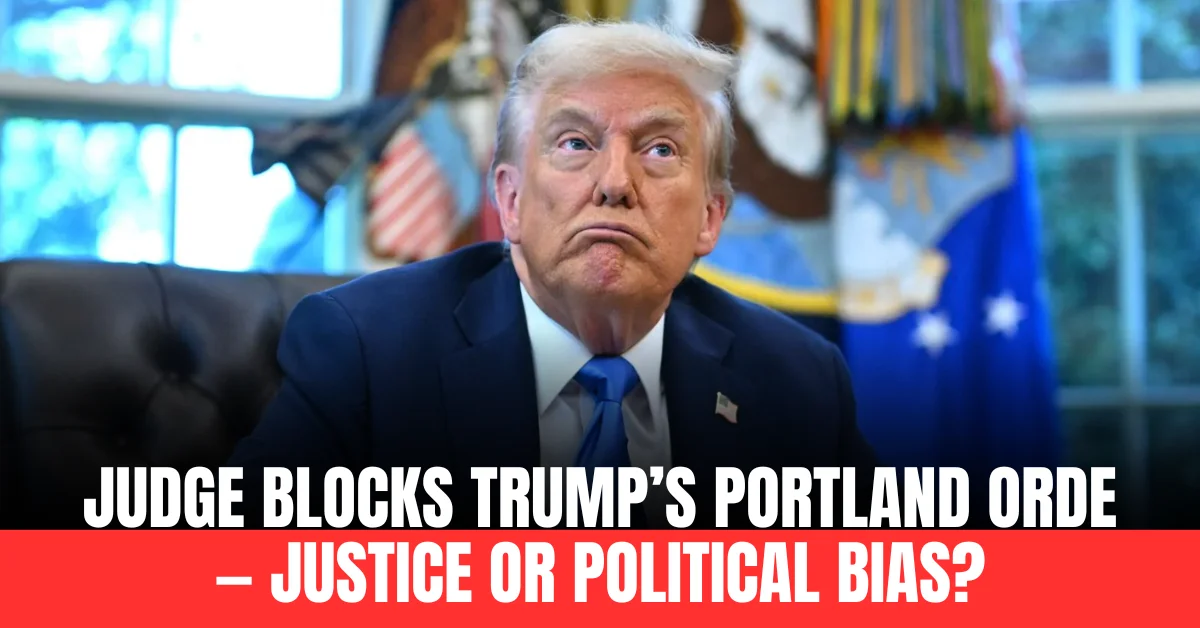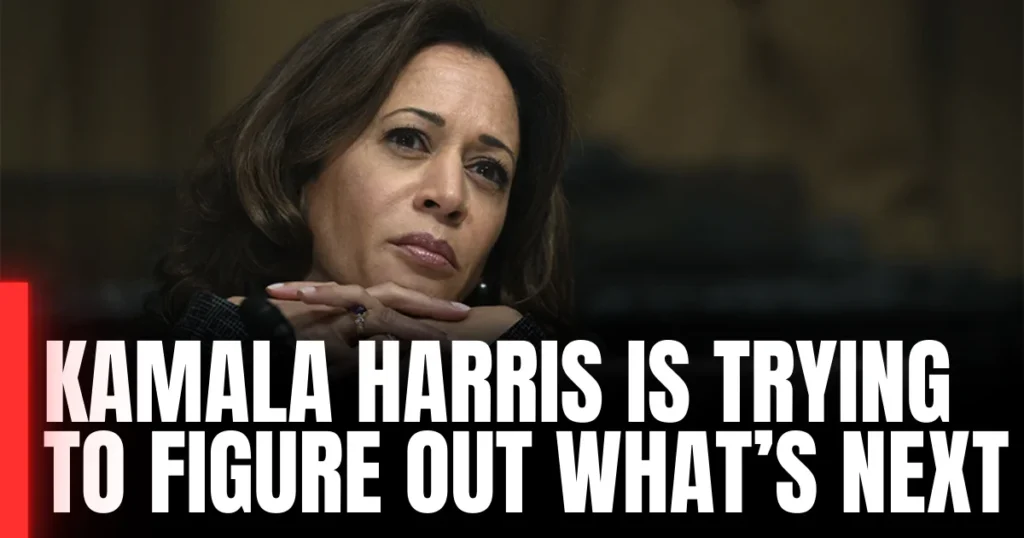A federal judge blocks Trump’s National Guard deployment in Portland, citing constitutional overreach. Learn what this means for state authority.
Table of Contents
Federal Judge Pauses Trump’s Plan to Deploy National Guard in Portland
Introduction
In a dramatic legal twist, a federal judge in Oregon has temporarily halted former President Donald Trump’s plan to deploy the National Guard in Portland. The ruling, issued by Judge Karin Immergut, argues that the President overstepped constitutional authority under the Tenth Amendment. This decision underscores an ongoing power struggle between federal and state control — and sets a major precedent for how the federal government can intervene in state affairs.
🏛️ Federal Judge’s Ruling Challenges Trump’s Executive Authority
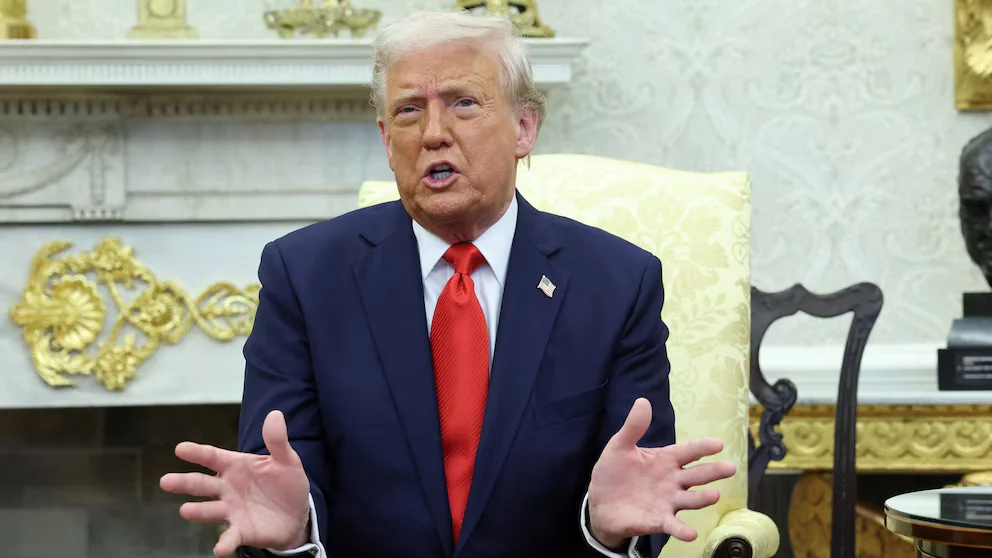
Judge Immergut, a Trump appointee herself, ruled that both Oregon state officials and the city of Portland are “likely to succeed” in their claims that the President’s actions violated constitutional boundaries.
She stated that while recent protests near federal buildings were concerning, they didn’t justify federal military intervention.
“While the administration’s cited incidents are unacceptable, they do not rise to a level that local law enforcement cannot manage,” the judge wrote.
This temporary restraining order (TRO) will remain in effect until October 18, with a hearing set to decide if it should be extended.
⚖️ What the Judge’s Decision Means for States’ Rights
Oregon’s Attorney General, Dan Rayfield, praised the court’s move, calling it a “vital check on presidential power.”
Governor Tina Kotek echoed that sentiment, urging Trump to “respect the court’s decision and the rule of law.”
At the heart of the ruling lies the Tenth Amendment, which reserves powers not delegated to the federal government for the states. The court emphasized that mobilizing state troops — without evidence of rebellion or invasion — exceeds presidential authority.
Essentially, the court reaffirmed that:
- Federal deployment must follow strict constitutional limits.
- The President cannot unilaterally “federalize” state National Guard units without clear justification.
🔥 Political and Public Reactions
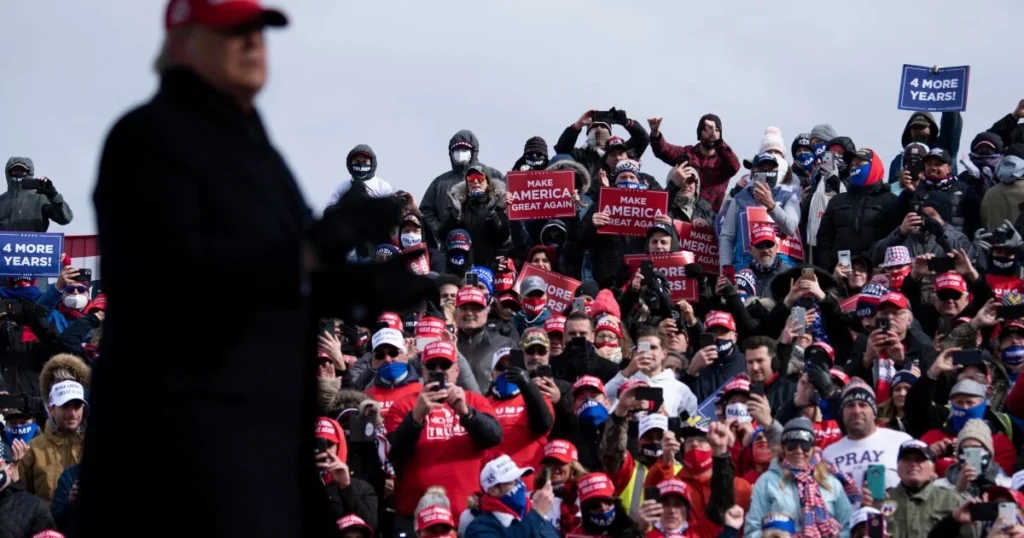
State and city leaders hailed the ruling as a victory for democracy and state sovereignty.
“This decision reminds us that leadership must be grounded in facts, not tweets,” Attorney General Rayfield said.
Local leaders described the president’s move as “politically motivated” and intended to portray Democratic-led cities as lawless war zones.
In contrast, the Trump administration argued that the deployment was necessary to protect Immigration and Customs Enforcement (ICE) facilities and to curb violent protests.
However, Portland officials say this was a “perception versus reality” situation — noting that most protests were small and largely peaceful until Trump’s announcement reignited tensions.
🪖 Inside the Legal Battle Over Federalized Troops
Federal prosecutors defended Trump’s decision by citing clashes between protesters and federal officers.
Assistant Attorney General Eric Hamilton claimed demonstrators threw incendiary devices and blocked access to ICE offices.
But attorneys representing Portland disagreed.
“The president’s perception is it’s World War II out here. In reality, Portland operates smoothly with a capable and professional police department,” stated attorney Caroline Turco.
Judge Immergut sided with the city, writing that protests did not meet the “danger of rebellion” standard required for federal mobilization.
🇺🇸 Chicago Faces Similar Federal Pushback
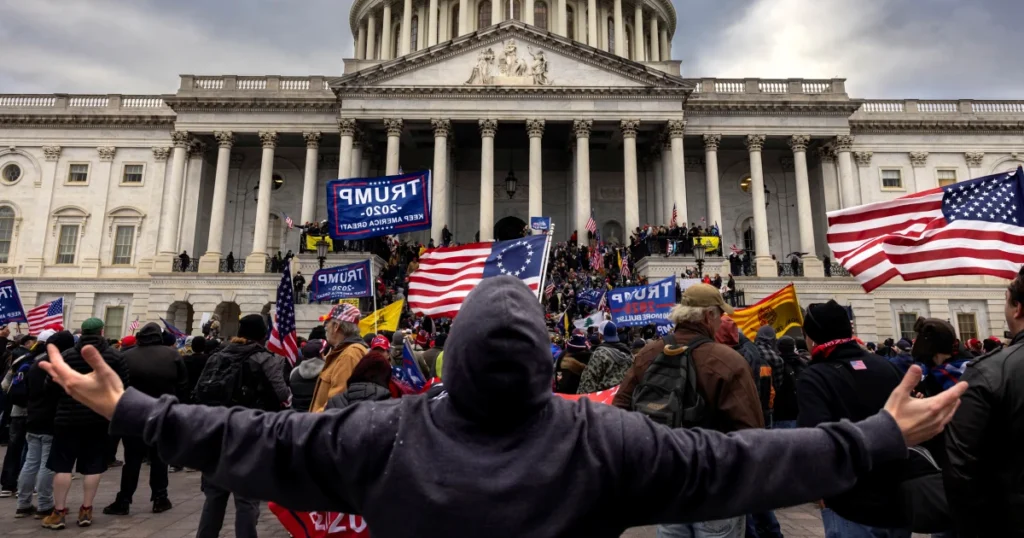
While Portland celebrates a legal win, Illinois is now under the microscope.
President Trump has authorized 300 National Guard members to be deployed in Chicago, citing “violent riots and lawlessness.”
Illinois Governor JB Pritzker slammed the move as “un-American,” stating that there is “no need for military troops on state soil.”
The Department of Homeland Security (DHS) has confirmed multiple protests near ICE facilities in Chicago, some resulting in arrests. Civil rights leaders warn that this escalating federal involvement could spark a constitutional standoff across multiple states.
📊 Comparisons to California and Broader Implications
This case mirrors a similar ruling in California earlier this year, where a judge ruled that the Trump administration illegally deployed federalized troops to suppress protests in Los Angeles.
Experts say that if Oregon’s TRO is extended, it could:
- Set a national precedent limiting presidential emergency powers.
- Strengthen states’ ability to resist federal law enforcement overreach.
- Influence ongoing legal disputes in other Democratic-led states.
❓ FAQs
Q1: Why did the judge block Trump’s National Guard deployment in Portland?
A: The judge ruled that Trump exceeded his constitutional authority under the Tenth Amendment by attempting to federalize Oregon’s National Guard without evidence of rebellion or invasion.
Q2: How long will the temporary restraining order last?
A: The TRO will remain effective for 14 days, until October 18, unless extended by the court.
Q3: Can the Trump administration appeal this decision?
A: Yes. The administration can seek a stay or appeal in higher courts, similar to its actions in California.
Q4: What does this ruling mean for other states?
A: It may encourage states like Illinois and California to challenge federal intervention, setting a stronger legal precedent for state control.
Q5: Is this the first time a judge has blocked a federal troop deployment?
A: No. Similar rulings have occurred in California and Washington, D.C., restricting the federalization of state military forces.
🧾 Conclusion
The court’s decision to block Trump’s National Guard deployment in Portland highlights a crucial constitutional boundary between federal and state powers. While the administration insists it’s protecting national security, critics argue it’s an overreach of executive authority.
As more states push back, this case could shape how future presidents wield emergency military powers — potentially redefining federal-state relations for years to come.
